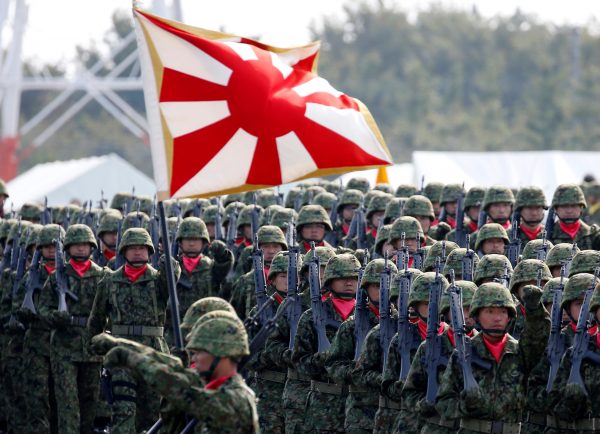When enacted in 1947, the Japanese constitution embodied the idealism — renunciation of war, gender equality, democracy, equality before the law, and the rule of law, to name a few — with which Japan began its journey to post-war reconstruction.
It would be difficult to make the case that the constitution hasn’t served Japan’s interests well over the past 70 years. But times change and there are also other aspects of the constitution that some think are also due for an update. While debate revolves around how to modernise the constitution in light of new concepts such as privacy and environmental rights, the most intense point of contention is Article 9.
Many suppose that Article 9 of the constitution simply denies Japan the right of belligerency and possession of military force. But in Japan, the article stands for different things for different groups of people. To some, it is a symbol of Japan’s post-war resolve to never again go down the path of militarism. To them, any changes to both Article 9 itself and its interpretation are the beginning of a slippery slope that will turn Japan back to its militarist past. The strong affinity of the Japanese people to this line of thought comes out clearly in opinion polls that gauge public attitudes toward constitutional revision. While most people are open to modernising the constitution generally, the solid majority still supports keeping Article 9 the way it is.
But Article 9 and the strong support it mobilises reflect an obliviousness to Japan’s international security environment, and an anachronistic approach to protecting the country’s security. The country faces an increasingly belligerent North Korea with enhanced nuclear and missile capabilities and a more assertive China closer to home. Persistent transnational threats posed by non-state actors such as the Islamic State have arisen in strategically important areas such as the Middle East and Southeast Asia.
Groups in favour of revision do not reject the post-war resolve that Article 9 represents: the promise that Japan will not be on the side of the aggressors in international conflicts. They do argue though that strictly upholding Article 9 hamstrings Japan’s ability to adequately defend itself from security threats in a world that is increasingly interconnected — a world in which it is impossible to, for example, make a clean distinction between ‘peacetime’ and ‘wartime’. They argue that there ought to be a way for Japan to preserve the spirit of Article 9 while ensuring that the nation can still meet its national security needs.
Balancing Japan’s post-war identity with new security exigencies was at the core of the debate when Japanese lawmakers deliberated the reformative security-related bills eventually approved in September 2015 and enacted in March 2016.
On one side, Prime Minister Shinzo Abe, his government and the ruling coalition argued that the security-related bills — which recognised limited changes to the interpretation of Article 9 — did not intend to change Japan’s post-war identity as a peace-loving nation. Rather, the reforms were minimally necessary to enable Japan’s defence establishment to both ensure Japan’s national security needs, and to allow the country to remain a relevant player in international peacekeeping efforts.
On the other side, those who opposed the proposed bill accused Abe and his government of merely sugarcoating their ambitions of creating a Japan whose robust military capabilities can participate in conflict overseas. In any case, after the security-related bills were passed in September 2015, Abe and his government lost the justification to rush the debate on constitutional revision in the short-term.
The need for a thoughtful debate about how to modernise Japan’s constitution while preserving its critical post-war identity as a peace-loving nation remains. The key will be to proceed cautiously and with level-headed awareness of the security environment that Japan now faces.
Yuki Tatsumi is Director of Japan Program at The Stimson Center, Washington, D.C.

